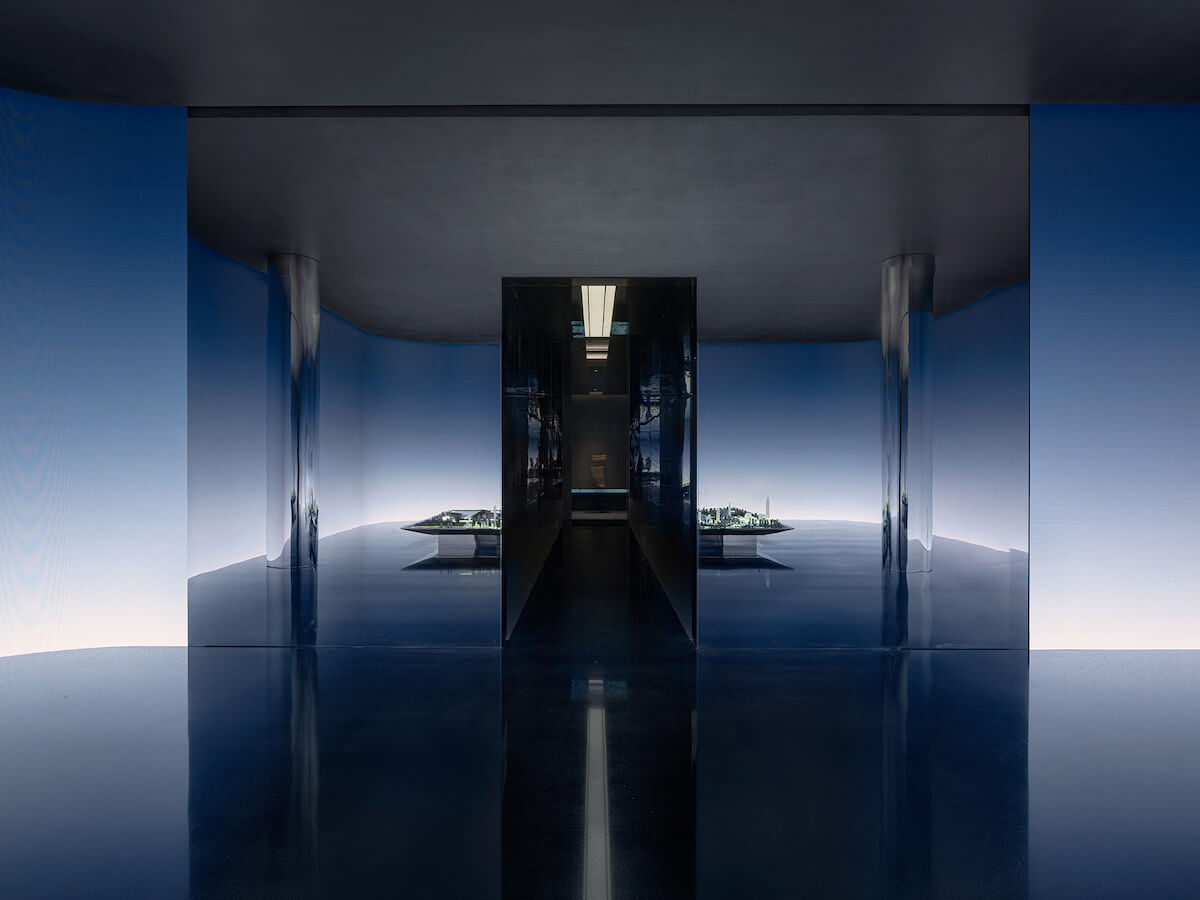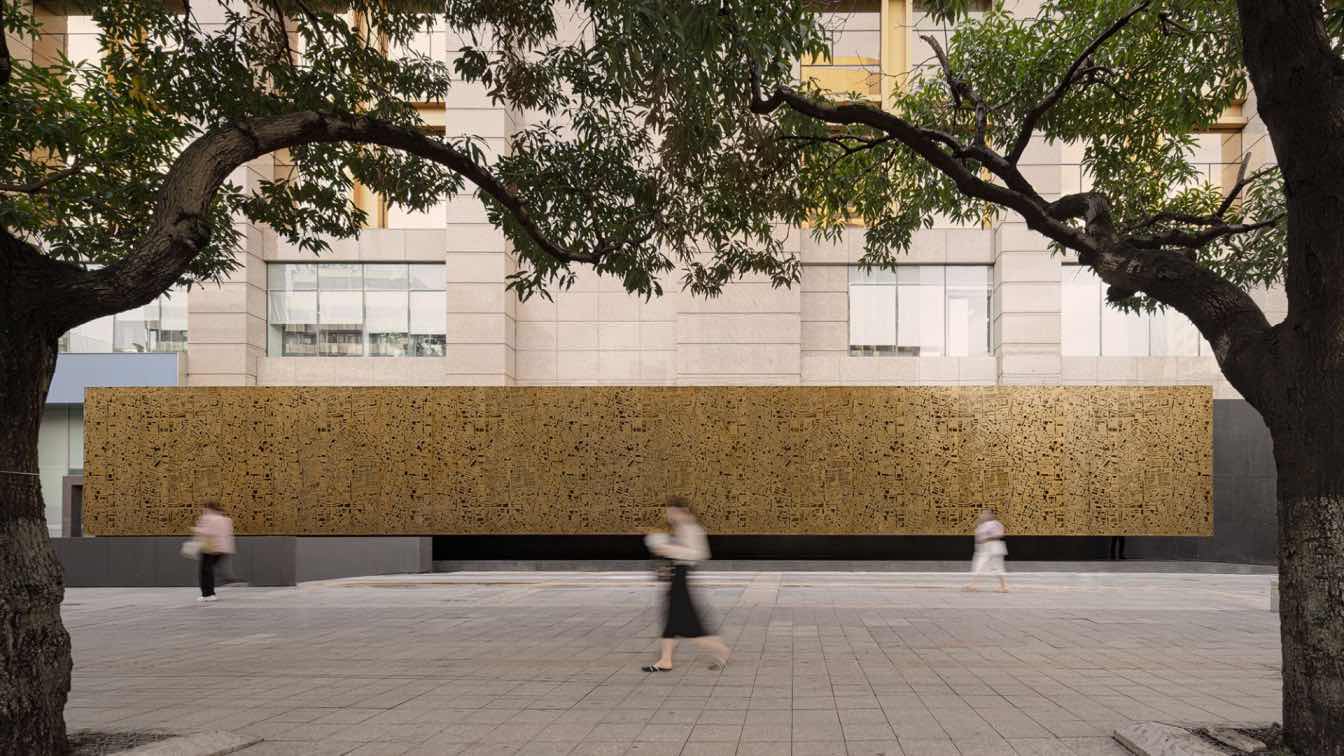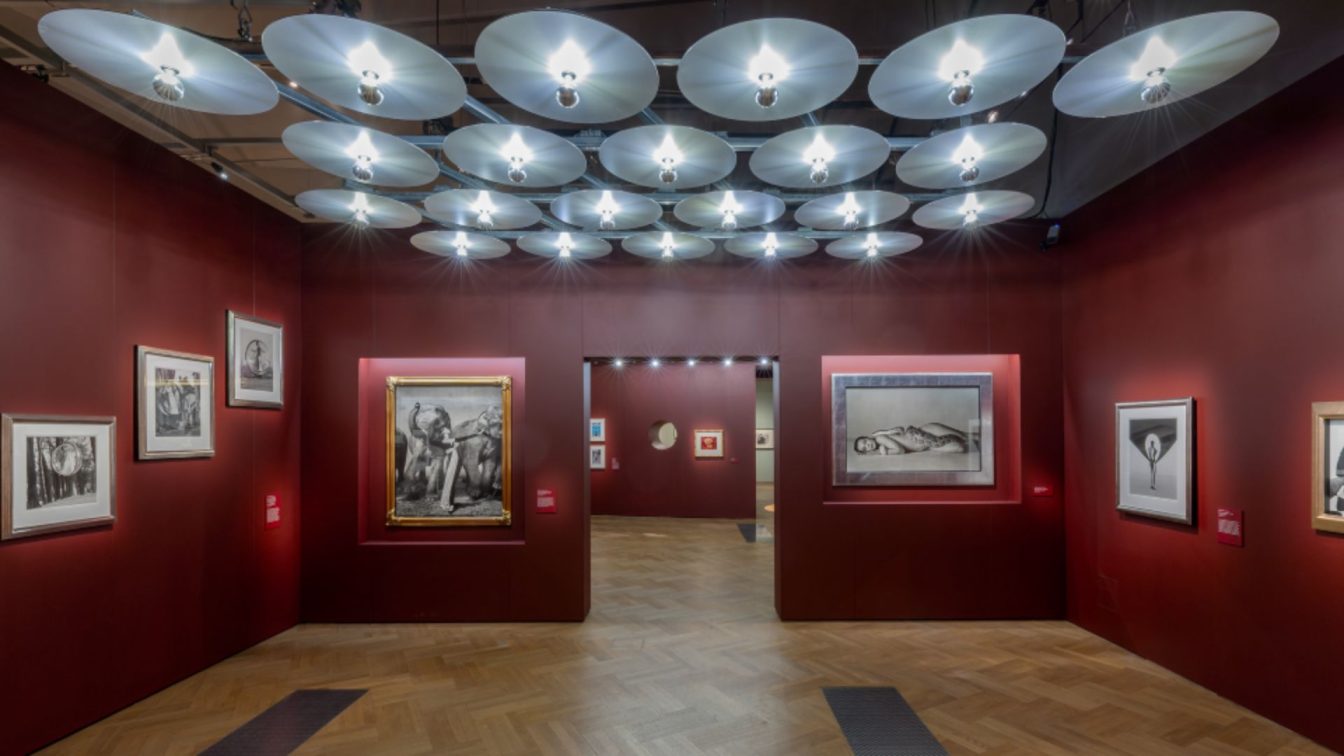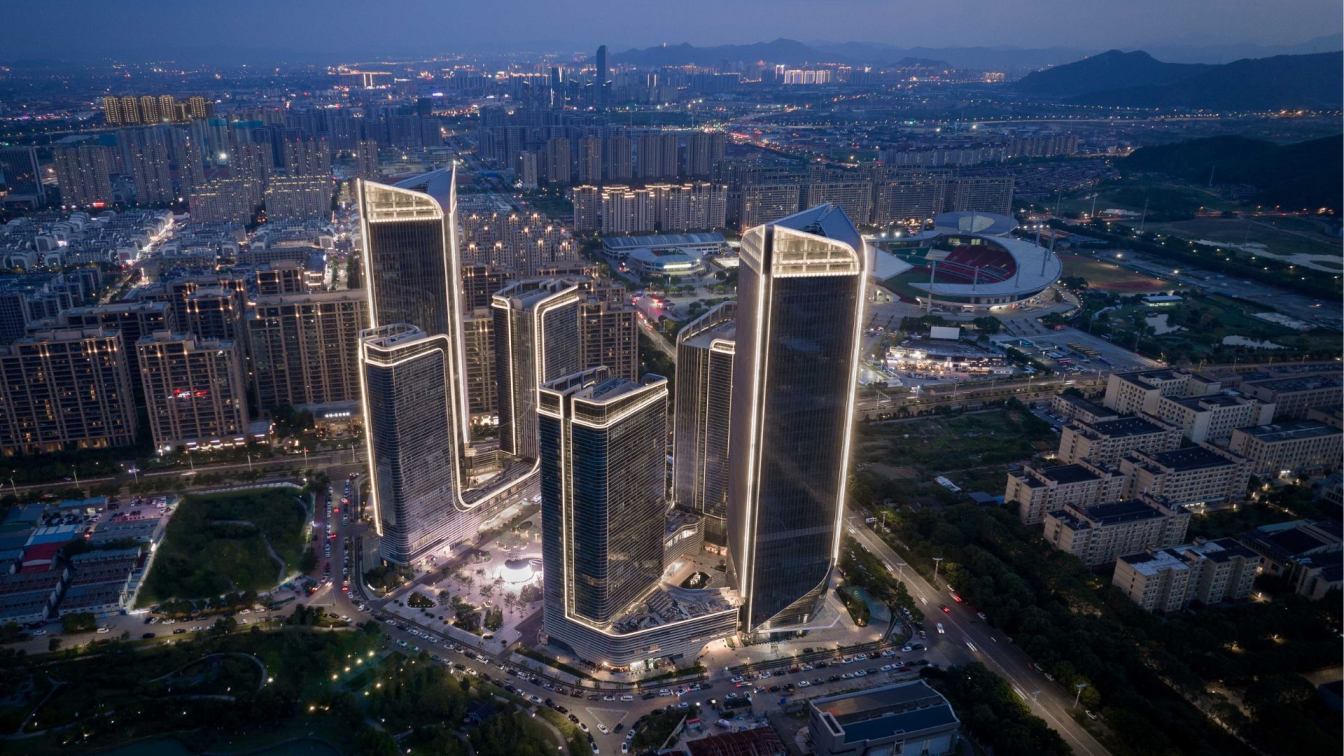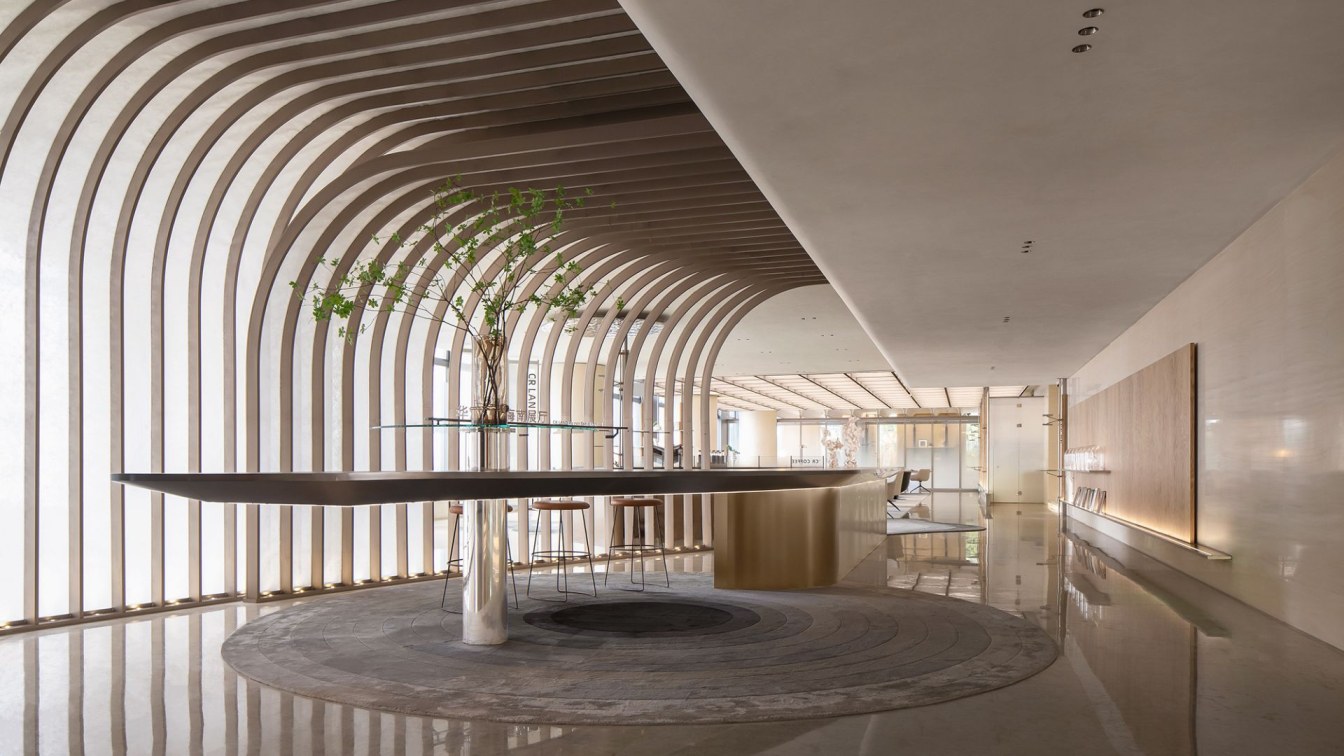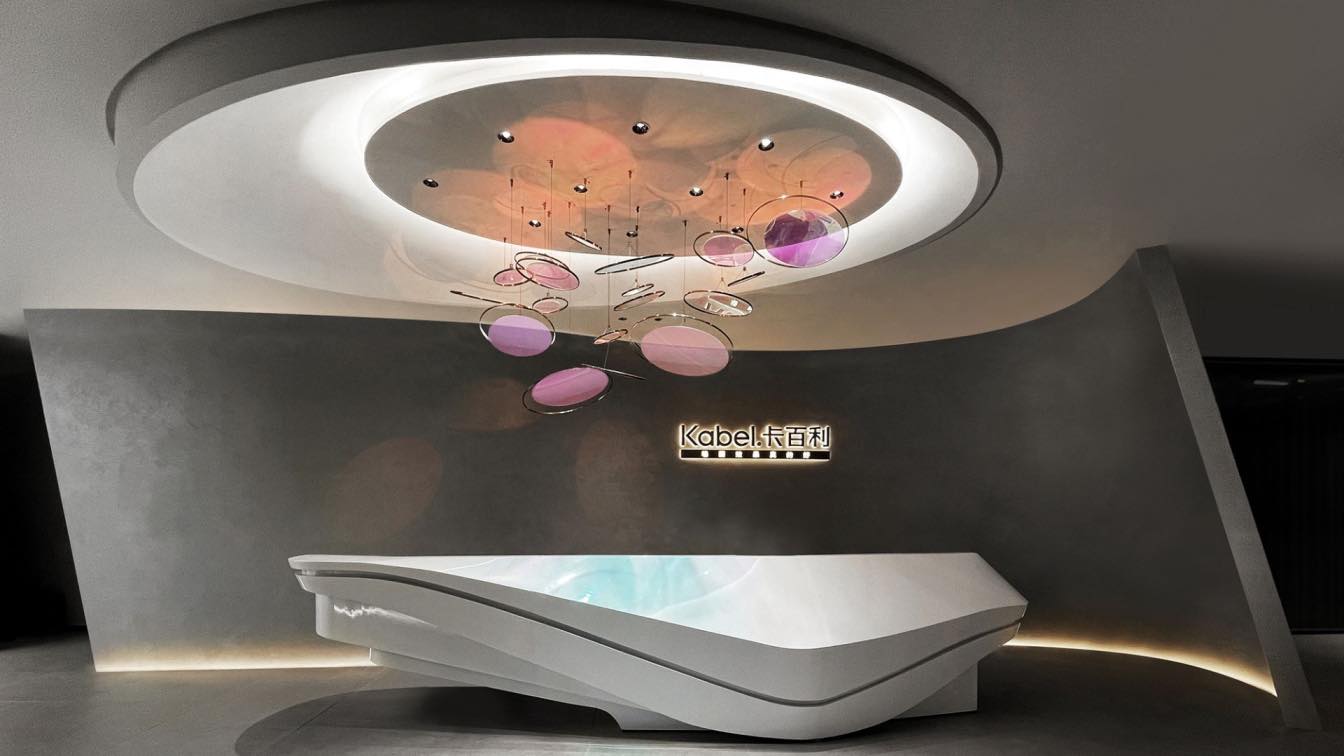Various Associates: The history of Luohu can be traced back to the removal of Luohu Mountain, undertaken to create a 1.3-square-kilometer golden area in Shenzhen. The buildings people now recognize, like the Shenzhen Development Center and Shenzhen Railway Station, stand on land that was once part of Luohu Mountain.
The Golden Business Center, a hallmark of "Golden Luohu", is one of Shenzhen's earliest urban landmarks completed not long after the city opened up. Constructed in 2003, this building embodies the architectural style prevalent during that period, notably recognized by citizens for its golden hue. To harmoniously integrate the new exhibition center with the existing structure, it becomes crucial to establish an appropriate design scale for the exhibition space's facade while preserving the style of the original building. To achieve this delicate balance, Various Associates ingeniously incorporated hollowed-out patterns inspired by the city fabric with a golden facade, to echo the original architectural features and establish a connection between the original structure and the new space.
The design team aimed to convey an essential tension on the facade with a contrast of solidness and lightness. Anticipating challenges such as the impact of the internal structure on the hollowed-out patterns, and general issues in an elongated cantilever, such as wind resistance and potential material deformation, the team opted for casting techniques involving acrylic and hollowed-out metal to tackle these technical hurdles. The finished cantilevered external facade now stands as the first super-large craftwork in China, boasting a nearly 30-meter-long facade cast with acrylic, achieved without the use of any metal screws.
As natural light filters through the hollowed-out patterns, it creates light effects with softened outlines. Visitors can sense the passage of time in the shifting interplay of light and shadows. As they traverse the passageway bathed in dappled light, they will reach the entrance of the exhibition center.
Immediately following the passageway, visitors will reach the first exhibition center, dedicated to narrating stories about the city's past. The design team crafted a sleek and minimalist dark-toned space, placing visitors in a gray area to enhance their perception of colored images depicting the city's history on a suspended platform.
The exhibition center that displays future vision is crafted into an inclusive space. It is designed as a vessel of imagination to showcase the infinite possibilities in the future, with a dynamic backdrop injecting fresh energy into the space.
As the backdrop transitions into its static mode, the models of buildings unveil their most basic outlines against a gradient skyline. The clean and softened background enables visitors to concentrate their gaze, immersing themselves in an ethereal sense of the future within a boundless space.
The urban exhibition center of Future City in Hubei area of Luohu incorporates a diverse array of elements, including the real and the virtual, brightness and darkness, light and shadows, the tangible and the ethereal, and reflections of both past and future. Leveraging materials and spatial relations, the design team curated varied experiences and emotional resonance within a confined interior space. Each door entrance offers visitors a journey through different timelines of the city, culminating in a return to their present lives.
To mitigate the excessive focus on two structural columns in the original building, a suspended round platform with a diameter of four meters seamlessly intervenes. Upon departing the immersive scenarios, visitors will find themselves in a space with a pure and natural texture, complemented by a vibrant courtyard— a transition that grounds them back to reality.
Nestled within the urban center, the courtyard acts as a tranquil retreat, shielding visitors from the hustle and bustle outside and introducing them to an "urban living room" that opens up to nature and light.
Inspired by the city's fabrics, the exhibition center takes visitors on a journey through various timelines. The distinct emotions evoked in each space resonate with the intended spatial values the designers aimed to communicate, establishing a dialogue with the site, the content, and spirits.





















